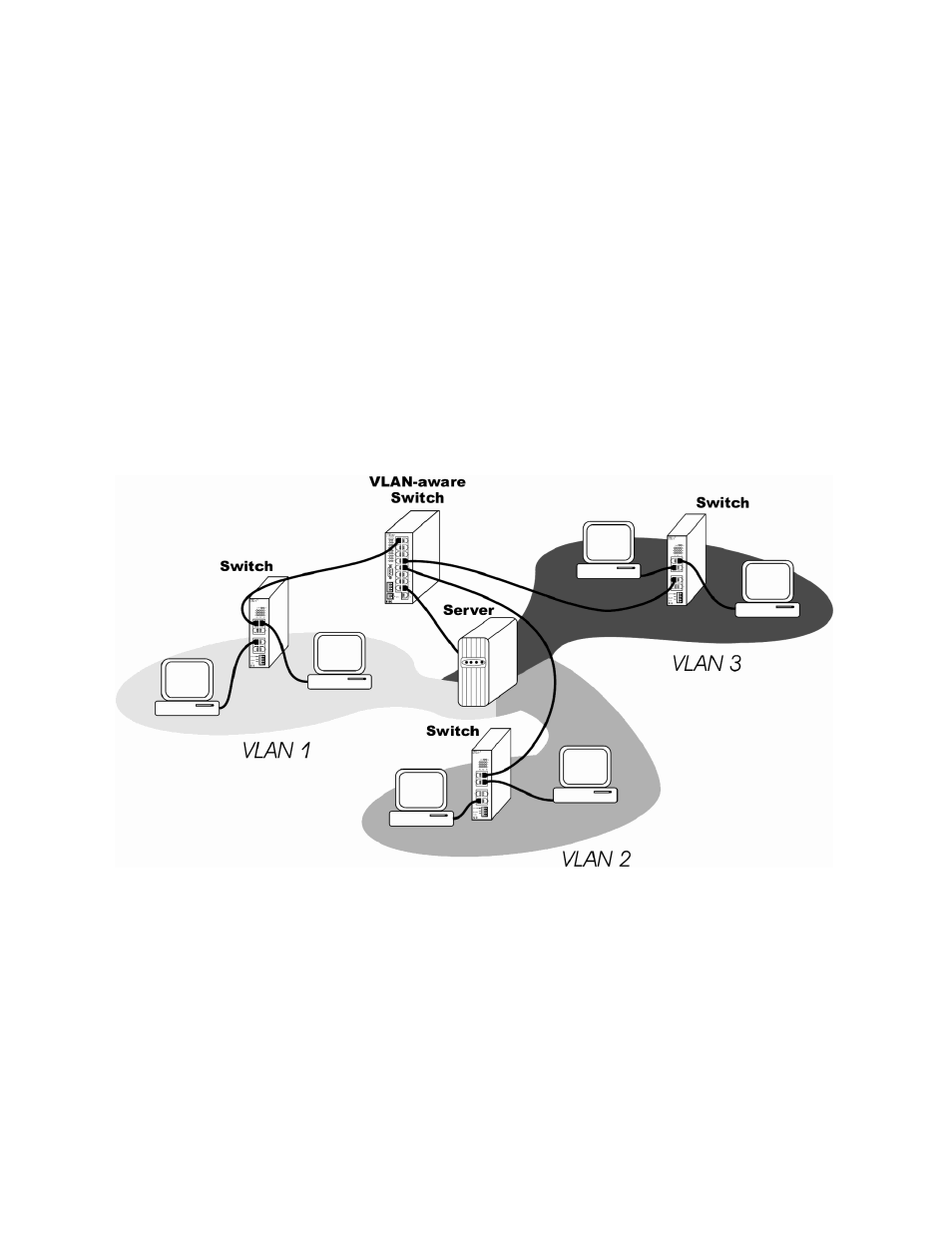5 configure 802.1q vlan, 1 all ports should be vlan ports, On 4.2.1.5) – Contemporary Control Systems Compact Managed Switches Software Manual for Console Access User Manual
Page 17

TD020850-0MG
17
4.3.5 Configure 802.1Q VLAN
A VLAN (Virtual Local Area Network) is comprised of devices grouped on some
basis other than geographic location (i.e., by work group, security level, user type, or
application). The devices logically behave as if tied to the same wire although they
may be physically located on very different LAN segments. VLANs are configured
with software, which offers much greater flexibility than hardware configuration.
A chief advantage of VLANs is that they block broadcasts and multicasts from non-
VLAN ports. Most switches tend to transmit unicast frames sent only to ports
involved in a conversation (directed messages) and cannot accommodate broadcast
or multicast frames. VLANs keep broadcasts and multicasts within a VLAN group.
Another advantage of VLANs is that despite being physically relocated, a device can
remain in the same VLAN — with no hardware reconfiguration needed. The VLAN
supervisor can change/add workstations and manage load-balancing (bandwidth) far
more easily than with a LAN modified only by hardware. Management software
maintains a virtual image of how the logical and physical networks compare.
Figure 11 — VLANs
4.3.5.1 All Ports Should Be VLAN Ports
When VLANs are enabled on the switch, each port should be assigned to one or
more VLANs. Such ports are called VLAN ports. If a port is not assigned to a VLAN
while VLANs are enabled, that port
cannot receive messages from the switch. A
frame received from a VLAN port will only be forwarded to those ports with which it
shares a VLAN membership. If the destination belongs to another VLAN, the frame
will be discarded. This topology allows networks to share a common server or
router, but use different VLANs for security or performance reasons.
